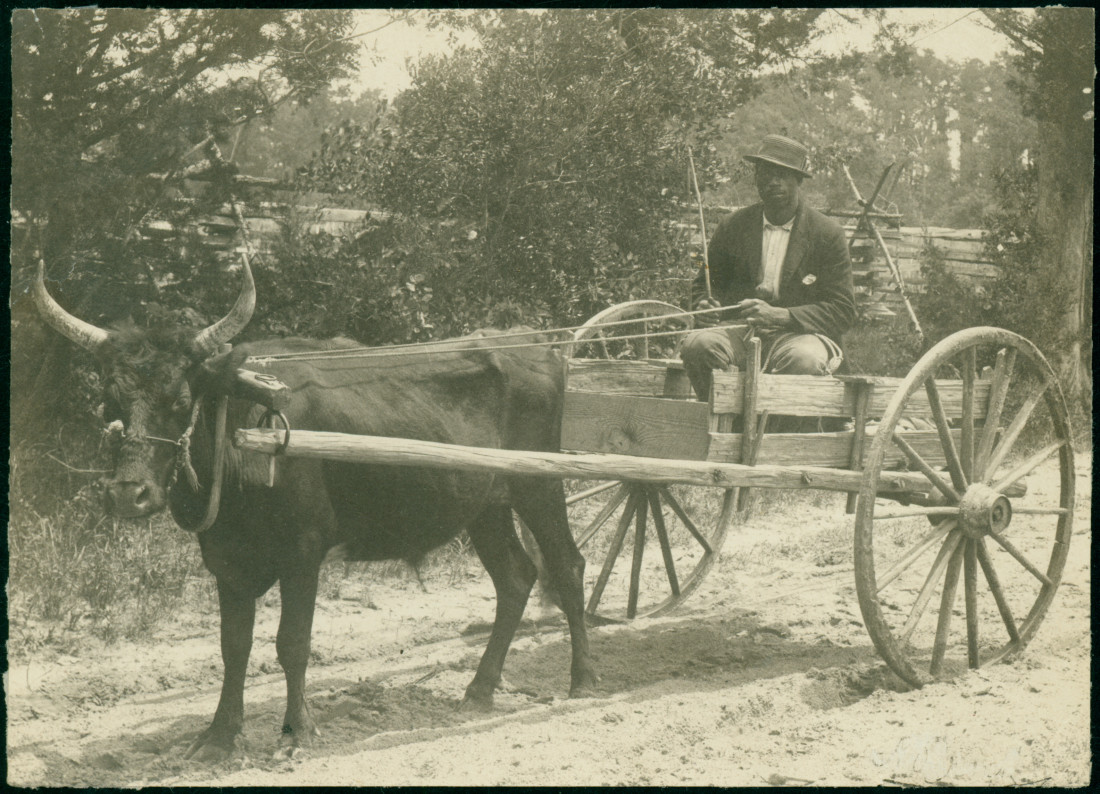Students of history are likely familiar with the Great Migration, in which nearly 6 million Black Americans left the South between 1916 and 1970, seeking better treatment and opportunities in the Northeast, Midwest and West. But smaller migrations occurred throughout the latter half of the 19th century as well, following the end of the Civil War.
According to the 2006 Encyclopedia of North Carolina, published by the University of North Carolina Press, roughly 50,000 African Americans left the Tar Heel State between 1889 and 1890. A major impetus was the passage of the Payne Election Law, “which threatened to restrict the voting rights of Blacks,” by providing “broad powers to registrars,” the encyclopedia notes. Additional factors included an agricultural recession and ongoing exploitation through the state’s crop lien system.
Amid this mass exodus, N.C. Gov. Daniel G. Fowle vacationed at the Mountain Park Hotel in Hot Springs. While there, the state leader offered an exclusive interview with The Daily Citizen. The Asheville paper proudly featured the conversation on the front page of its Sept. 5, 1889, edition. The headline read: “The Negro Question.”
The article’s opening paragraph noted:
“In conversation with your correspondent the Governor gave utterance to his opinion concerning the negro exodus from North Carolina, and said that his opinion was the opinion of the people of the State generally. It is, to the effect, that the quicker North Carolina gets rid of the negro population, just so soon will she be able to induce hardy white men from the North, West and other sections of the union to come in here and settle. But so long as 500,000 to 600,000 negroes live here, outside white men will not come in to any great extent.”
Fowle went on to promote stereotypes depicting African Americans as lazy and unintelligent. For this reason, the governor explained, “I shall give the negro every facility in my power to travel to other States. … North Carolina is the white man’s country.”
But the optics of a mass exodus in tandem with allegations of voting restrictions put white North Carolinians on the defensive. On Sept. 19, 1889, The Daily Citizen notified readers that it had received a copy of the Daily Sun, a paper based in San Diego. The Daily Citizen wrote:
“Our attention is called to an editorial in which the negro question is discussed, and are glad to see that [former Asheville resident] Gen. Johnstone Jones, in conversation with the editor of the Sun has been enabled to disabuse him of some erroneous impressions, and to put him on track of taking just and common sense views of the Southern situation and the negro question.”
Among Jones’ talking points, the general declared, “The negro to-day, in the length and breadth of the South, is a happy and contented animal. The loss of political power does not trouble him, although he would use it if he could get it back.”
The following year, on Feb. 27, 1890, The Asheville Democrat reported that a majority of the region’s African Americans who fled North Carolina relocated to Louisiana, Mississippi, Arkansas and Texas. The paper warned:
“The exodusters seem to be well pleased with their new homes, and send back encouraging reports. It is to be expected, therefore, that there will be a much larger movement in the early future, unless some legislation is attempted to stop the operations of labor agents[.]”
Despite Gov. Fowle’s earlier claims that the state stood to benefit from the mass exodus, efforts were soon put in place to curtail the numbers. According to the Encyclopedia of North Carolina, in 1891, the General Assembly passed legislation known as the “Farmers’ Alliance,” which “required an emigrant agent — defined as one who hired blacks for employment outside of the state — to purchase an annual license in each county in which the agent operated for $1,000 [roughly $28,300 in today’s dollar].”
Two years later, the N.C. Supreme Court declared the law unconstitutional. But by then the number of African Americans leaving the state had already begun to subside.
Editor’s note: Peculiarities of spelling and punctuation are preserved from the original text.




I’m surprised to see no mention of or connection to the Wilmington Insurrection in this article.
but the Wilmington massacre was not until 1898 …?